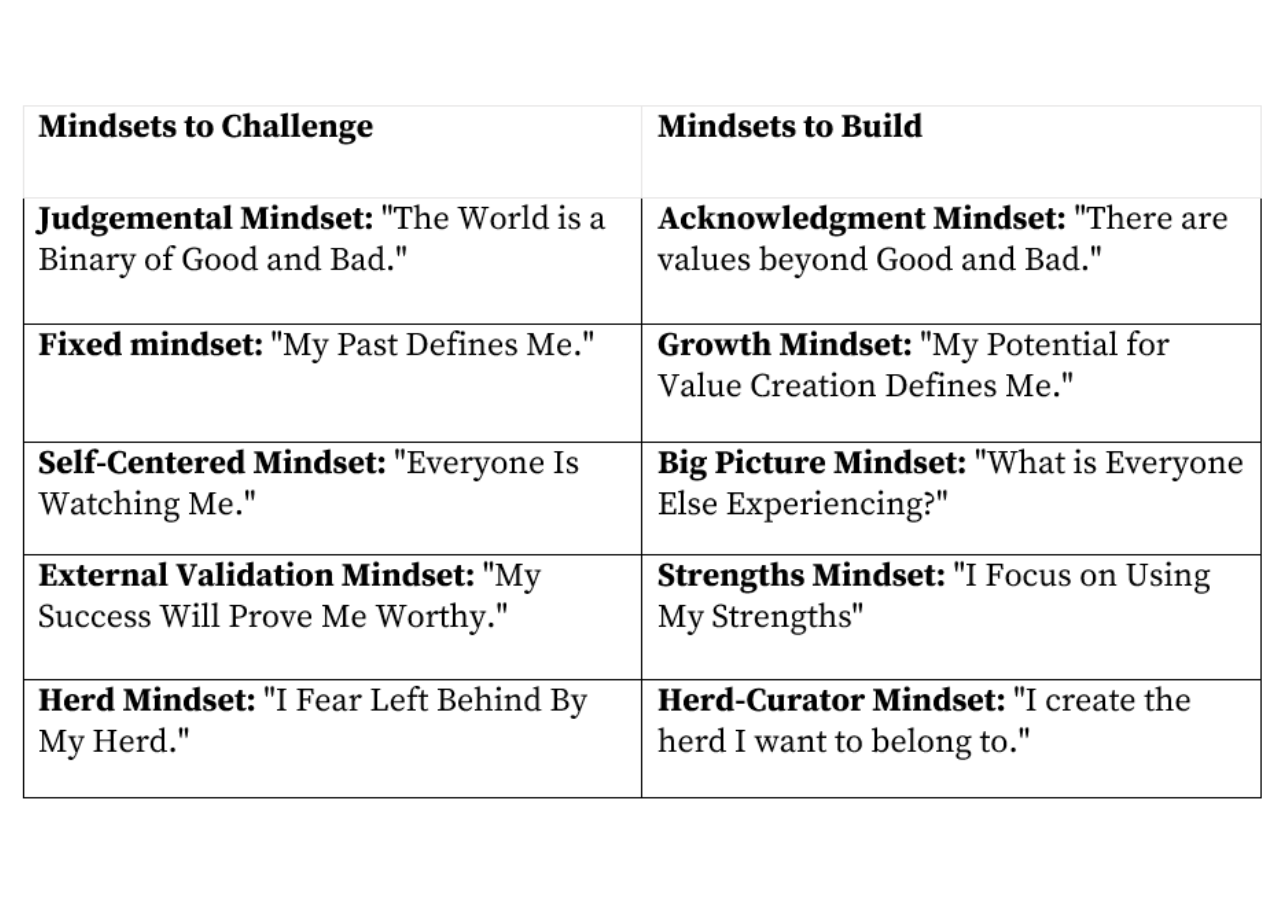Peer pressure can be a great force making us better humans. Seeing a relatable (and comparable by our standards) person doing great stuff shows us a real possibility for excellence. But ouch, that can also trigger our deepest insecurity. “Why did I not think about this?” “How come I am not so capable?”
If your self-comparison is triggered constantly and your desire to be seen as somebody by peers becomes draining, watch out. Peer pressure is probably consuming you.
My Battle with Peer Pressure
I have battled with peer pressure myself. The INSEAD Business School, where I pursued my MBA, is full of high achievers. In my cohort alone, many people I sat side-by-side with had gone ahead to carry big titles in the most prominent companies, own the fanciest start-ups, or gain recognition on the most prestigious platforms. And not to mention my alums who are already CXOs of billion-dollar companies or playing influential roles on the world stage.
Through my experience, I have come to understand this: Feeling left behind in a fast-moving world is nerve-wracking, but feeling worthless in a world of greatness is ego-depleting. This thought pushes us to seek external validation. Life becomes a torment in purgatory as the fire of ambition, no, jealousy, consumes us.
And I was not alone. While many INSEADers identified with this challenge, ambitious and high-achieving individuals are generally prone to feeling stressed about their peers’ excellence.
Coaching others who shared the same challenge offered me a unique learning opportunity. Through many dialogues with inquiry and reflection, I learned along with my clients: How to deconstruct our collective pain by challenging the underlying mindsets.
Judgemental Mindset: “The World is a Binary of Good and Bad.”
When we compare ourselves to others, we judge ourselves with a “commonly agreed formula” to measure success and think others do the same.
👉Why should we challenge this mindset?
Status, fame, and wealth are the common indicators of success. However, they are tough to measure given this world’s many value dimensions. For example, how can we compare the medal awarded to a healthcare staff for fighting at the pandemic frontline with another medal awarded to an athlete breaking a national record? When we can’t measure something, we can’t compare.
☀️Choose an Acknowledgement Mindset
Instead of comparison, we can acknowledge all the values in existence, which draws us away from a competitive mindset obsessed with win and loss.
Fixed mindset: “My Past Defines Me.”
When we assess ourselves based on what we have achieved now, we assume the future is merely a foreseeable continuation of the past. On top of our dissatisfaction with the current state, this belief sets us in a pessimistic framing. We take no account of our personal growth, effort, or future opportunities that may emerge.
👉Why should we challenge this mindset?
Life is never just a continuation of the past. Many of the opportunities that made us who we are today, we never knew or imagined in the past. And this means we are equally unaware of what will emerge in the future.
☀️Choose a Growth Mindset
It is not our past but the potential we hold for creating a better future that defines us. We can choose to have a growth mindset and fill our minds with wonders for what is yet to arrive. We run marathons differently from sprint races: we pace; we let others get ahead; we don’t give the temporary positions too much importance; our focus is on the long term.
Self-Centered Mindset: “Everyone Is Watching Me.”
We all know that we are not the center of the world. But subconsciously, we create an inner world where we matter much more than we actually do. It is as if everyone is watching us attentively, ready to laugh at us for our failures or applaud us in amazement when we attain success.
👉Why should we challenge this mindset?
It is in our imagination that others are judging us. It is true – sometimes, some people will judge. But we can never know how they judge, from what angle, and with which metric, which means all the judgments in our knowledge are practically our fantasy.
In reality, we are more likely to be ignored than looked down. People are too busy chasing their goals, dealing with their challenges, or battling their illusions. They don’t have much time to watch others; if they do, they won’t spare many thoughts for you. And even those seemingly successful would struggle at some point, if not right now.
☀️Choose a Big-Picture Mindset
The world is more connected than ever. We can look beyond our fantasy and understand others with curiosity. Suppose it feels too abstract to connect with the 50 million people on the verge of famine or the Ukrainian civilians living under life threats. In that case, it’s always possible to start with a colleague or a family member to observe how their life does not revolve around us.
The past decades have been an era of individualism. However, it is hard to live a life of purpose if all we consider is self-serving and self-preservation. We need to go beyond ourselves to have a meaningful life of purpose.
External Validation Mindset: “My Success Will Prove Me Worthy”
Many think we become worthy when our achievements speak for us or when some important people say so. Anchoring our self-worth on something tangible reduces ambiguity, helping us to feel more in control. But it creates another problem. Our self-worth risks getting shattered when things don’t turn out the way we want. And things often do go wrong when they can.
Think about it, HBO scrapped the Batgirl movie after spending $70m. Does it mean that the actors should start self-doubting?
👉Why should we challenge this mindset?
“External validation” never works beyond a short period of happiness. All the achievements and recognitions you attained before did not make you more self-assured – because no external entity or person deserves the enormous power to validate your existence, something so magical as life.
☀️Choose a Strengths Mindset
Valuate, not validate. Our existence doesn’t need to be validated. It is not our past but the potential we hold for creating a better future that defines us. Acknowledging and working with our unique strengths allows us to focus our energy on value creation.
Herd Mindset: “I Fear Left Behind By My Herd.”
We compare with our childhood friends, school peers, co-workers and, ex-colleagues, neighbors. We need reference points to reassure ourselves and feel safe.
👉Why should we challenge this mindset?
If you pay attention, you will notice that your choice of people as reference points is by chance. You just happen to interact with or hear about them more often.
☀️Choose a “Herd- Curator” Mindset
Curate your own peer group. As such, you can stay away from irrelevant noise and focus on what matters on your chosen path.
When we are able to have these mindset shifts, we can see abundance instead of a zero-sum game in a limited world. We will then be generous to celebrate the success of others and our own, form collaborations, and stay inspired.



